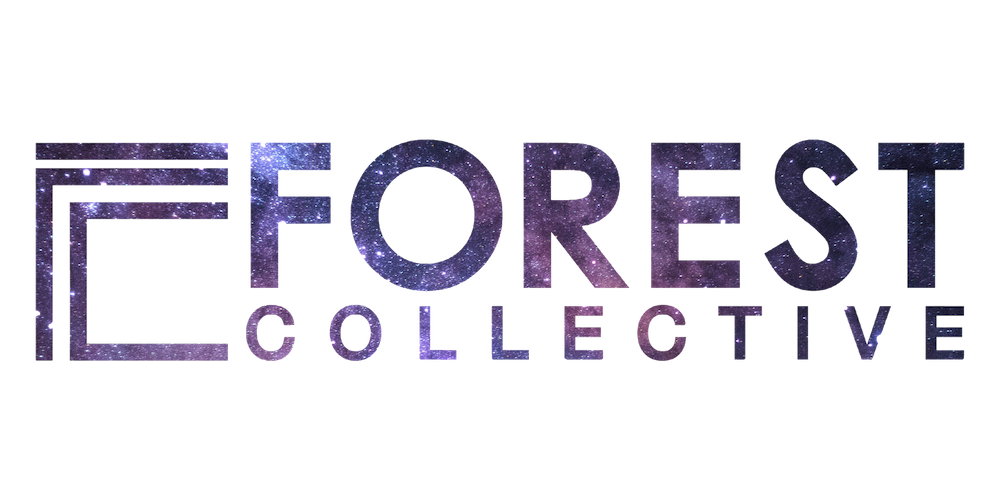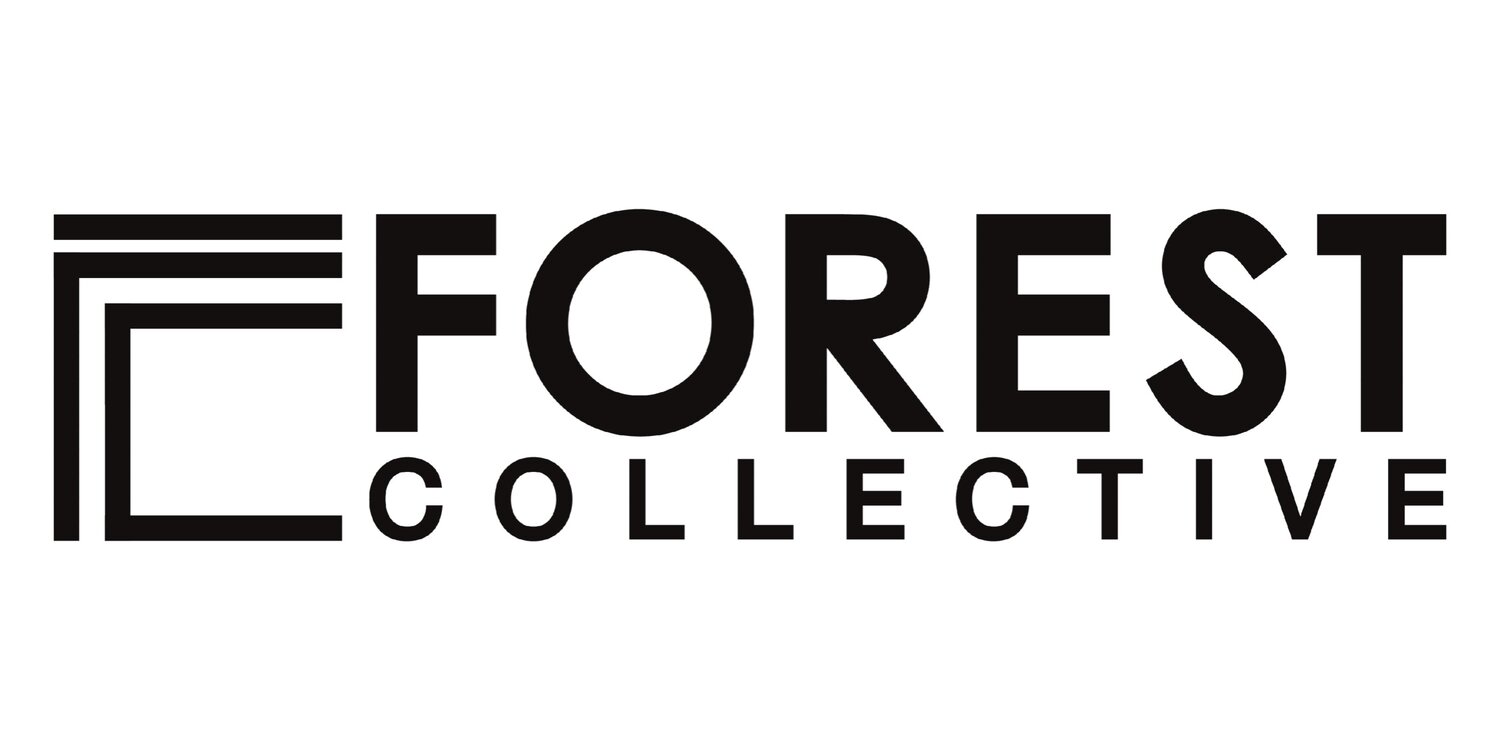It’s A Matter Of Time - interview with Evan Lawson
Firstly - tell us a little about yourself. What type of artist are you and how long have you been involved with Forest Collective?
I’m a composer, conductor and producer. I formed Forest Collective in 2009 with a handful of other artists, and I’ve been involved in just about everything Forest!
Evan Lawson. Photo by Darren Gill.
Where did the idea for It’s A Matter Of Time come from? The premise of “exploring humanity’s struggle with the inexorable passage of time” seems like quite a huge thing to tackle through music!
The title actually came from the venue, the Eleventh Hour Theatre, and we thought, let’s do a series focused on time! The phrase “it’s a matter of time” just seemed like interesting wordplay, especially because all of music is playing with time, and the number one priority in music is how it deals and relates with time. Also, it’s just a bit of fun that “it’s [only] a matter of time” before we do something with Forest Collective for the year. We’ve also done these sort of concerts before where a large portion of our artists each play a solo piece based on a common theme. The last time we did it was the Sun Songs & Cycles project which was about spring, so we gave everyone in the collective the chance to respond to that theme, and a whole gamut of choices came out of the woodwork. On top of that, with the exception of a few pieces that are accompanied by Danaë, all other pieces in It’s A Matter Of Time are solo works, which adds another layer to how you conceive and relate to time when you’re dealing with a single line instrument, which to me has a very different experience of time to an ensemble or orchestra.
There are four world premieres in this concert - where do you get these new works from and how do you approach performing a world premiere?
Two of the world premieres are my works and the other two are by Barry Mckimms and Jared Yapp. Barry is a respected and accomplished composer who approached me via our horn player Phoebe Smithies about his piece Colombine "X..watching others burn for me" for Horn, which he wanted to have done by Forest Collective. We did a video performance of the piece during the covid lockdowns and everyone can watch it on our website at Forest At Home, but this is the first time it will be performed live.
Jared Yapp is a wonderful violist and composer from Perth, his piece Old Wool Road for Soprano and Horn was written for another group who are unable to premiere it. I work with Jared at ANAM, and said “Yes of course we’ll premiere it!”
New pieces rarely get second performances in the new music world. People also don't often have the opportunity to reflect, learn and understand a new piece before it’s thrown out there. Of course Forest is part of that and we do a lot of world premieres, but we do it in a way that makes sense. It might be as a part of a composer’s residency, it might be part of a larger work, or it might be a workshop - with Forest, world premieres are not just played and quickly forgotten. We will always program world premieres, but I want to make sure that they compliment and speak to other things. So a program like It’s A Matter Of Time is a really great opportunity for that. Eurydice for example is speaking to another work that Forest audiences have seen - it’s a remake of a remake. Jared Yapp has played with us before but we’ve never played his music until now. We have recorded Barry Mckimms’ piece during the lockdowns but now we’re playing it live for the first time.
Then there’s the question of how do you pair pieces together, how do they sit in the context, what do you position them against. You also need to have a good gender balance across the program, making sure it’s offering different perspectives in the music. I think often world premieres are such an aesthetic statement, but when you look at Forest’s commissions, they often came about because of relationships that either I or the ensemble maintains instead of pieces just submitted to us.
You won’t be conducting during It’s A Matter Of Time - does this change the feel of the concert for you? You’re still leading but is there a noticeable shift when you’re not on stage with the artists, or does conducting & artistic directing feel more similar than one would think?
Directing is like a different kind of conducting and they’re both about expectation management which is a big part of any good leadership. From a practical perspective, directing is more relaxed because I don’t have to learn the scores and rehearse. But that sense of care and leadership is always there. There's a responsibility there as artistic director that I have to see the projects be the best they can be, whether I’m creatively involved or not.
Forest Collective is so intertwined with who I am and what I do that it’s always tricky to step away and allow it to live and breathe outside of my creative expression. But I still have to allow it to thrive without me being involved in everything. It’s very rare that I say no to projects, but I do believe there needs to be someone to do the quality control and to say, this is not up to the level that we want Forest to be, maybe it needs to be worked on more and we can revisit this. We’re fortunate to not have been in this situation a lot but we have had to cancel shows before and that’s my responsibility to have those conversations. It’s hard to hear and it’s hard to tell people, but as a collective, we can’t just allow everything to reign free, there has to be some ultimate direction with it.
Sun Songs & Cycles 2022. Photo by Daniel Rabin.
Another example is the issue of gender balance in a program. If we just let everyone pick a piece to play, quite often we would get a program full of music by dead white dudes because the canon is full of men. Then it’s my responsibility to make the effort to carve out those spaces for better balance of perspectives. It’s important to just acknowledge it and to say, it would be great to do that piece, but how about we do it next time and we focus on this underrepresented composer this time.
I also make sure that Forest Collective itself is a very diverse space so that other people have the ability to raise concerns as well as programming ideas. Forest is a space where everyone has the opportunity to contribute in the way that they want to - they can be as involved as they wish in the decision making process, or they can simply just show up and play. But another side of that responsibility is to make sure that we don’t just get bogged down into a lot of conversations, because sometimes we just need to get on with it and put the show on! It’s a fine line to make sure both those things are nourished.
Can you tell us a little bit about your new piece Eurydice for Mezzo-Soprano and Piano?
It’s based on an old piece that I’m expanding into a song cycle. I’m taking two arias from my opera Orpheus that we did in 2019 and writing an extra song for Alise, so that it can be performed outside of the opera. This song cycle is about all of Eurydice's moments from the myths and the opera. We so often view her through Orpheus’ telling of the myth, but this song cycle will give the female character at the centre of the opera agency and a moment to display her journey through the myth. The idea is that the song cycle and the opera can be individual works of the male and female perspectives, or they can be inserted into each other. So the two become this modular work that talks to each other.
Are there specific things you hope the audience will experience during this concert? Or do you feel like art is a kind of “holding space” for people to have? Is this how things are usually approached at Forest Collective?
I think a concert like It’s A Matter Of Time - and I’m using the word “concert” specifically - infers a specific type of physical and aural experience. You’re sitting in a room in a chair, not necessarily in a theatre and not necessarily experiencing something that’s narrative based.
There is an overarching theme for the series, but each individual project is so distinctively different from each other, you’re gonna have completely different experiences. And that’s the bedrock of what Forest is, it’s “let's take this amazing thing that is western chamber music, and let's put it in various iterations that are really unexpected”. Whether that is simply in a concert like this where you have a whole variety of pieces put together that would normally not be put together and probably would never be put together again - through to something like Folding, which has a very specific aesthetic and function as an artwork with dance and costume. What’s probably most integral to me at Forest is that we create experiences that are enjoyable for everyone involved. We don’t just do a concert in a church somewhere, on an uncomfortable pew, where you’re listening to difficult music. It will be an enjoyable experience for you to go to, there will be a bar, it will be a warm environment where you can speak to the musicians - we encourage a really safe space for people to experience the artwork.
Tides 2022. Photo by Dan Rabin
On top of that, there’s variety. Every concert you go to is not going to be the same. You’ll have a concert, then you’ll have a digital experience, then you’ll have a theatre experience, or a dance work. We celebrate the interdisciplinary aspect of Forest Collective and we do make it our distinctive quality, but it’s more about the experiential things: how do we put baroque music, new music and dance together that’s going to speak in a cohesive theme? How can we bring 16 musicians of Forest together to play solo pieces and for that to work as a cohesive thing that the audience can get something out of? It’s not about “we’re going to do the coolest thing and bring things together that have never been done before”. Usually it’s a lot more pragmatic than that. This concert was curated because we want to put on a concert and we want everyone to play a piece, and this is just the easiest way to do it! It’s about creating a space for individual interpretation, as well as removing the mystery around how things are curated. You can have a beautifully tailored program, but you can never know how the audience is going to interpret that. So it’s about carving away a lot of that dogma and allowing works to be on an equal footing across the ensemble, across genre, across style and art form, just creating space for that to sit and to be displayed in some way. We often come with such loaded ideas of what certain artistic experiences should be, but at Forest we try to slowly but surely carve all that away.
It’s A Matter Of Time will be held on Oct 25th, 7:30pm at the 11th Hour Theatre in Fitzroy.




